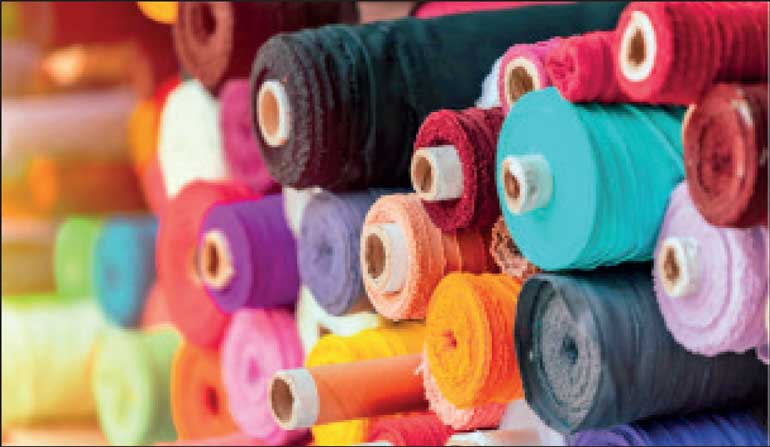Tuesday Feb 24, 2026
Tuesday Feb 24, 2026
Wednesday, 7 July 2021 00:00 - - {{hitsCtrl.values.hits}}

By Charumini de Silva
The Cabinet of Ministers this week took further steps towards operationalising the fabric manufacturing zone in Eravur, Batticaloa.
One decision was to recognise and accept the proposed fabric manufacturing zone as a Strategic development Project under section 3 (3) of Strategic Development Projects (SDP) Act No. 14 of 2008. Another was to apply the relevant tariff and other releases to the projects to be established within that zone as per the provisions of that Act.
Cabinet also decided to publish a gazette notification as per section 3 (4) of the Strategic Development Project Act pointing out the tax and other relief to be granted as such and the gazette containing the same to be tabled in the Parliament for approval.
This is a follow up to Cabinet in October 2020 approving a proposal by Industries Minister Wimal Weerawansa to establish a zone on a 400-acre plot in Eravur, Batticaloa dedicated for manufacturing fabric and to consider it as a SDP.
The Government is keen to facilitate investments made by foreign/local textile manufacturers at the zone in national interest to bring economic and social benefits.
The Joint Apparel Association Forum (JAAF) has welcomed the establishment of the fabric park.
In 2019 Sri Lanka imported 255,437 tons of fabric both for the export-oriented apparel manufacturers and for domestic use. The import bill for this fabric came to $ 2.2 billion.
JAAF said the establishment of the Eravur Fabric Processing Park would help reduce the imports of fabric as apparel manufacturers would be able to replace a part of their imported fabrics with fabric sourced locally.
There are currently seven textile mills manufacturing fabric for the export-oriented sector and these mills are capable of producing the finest quality of fabrics. Daily output of these mills is around 175 tons and JAAF said this was a vital component in the building industry value addition to over 52% even after accounting for the yarn imports of the local mills. Sales from these seven fabric mills to the BOI registered apparel exporting companies amounted to $ 499 million in 2019.
Estimated to cost Rs. 5 billion, the park is scheduled to see its first production of fabric early next year.
Tariff and other exemptions to be granted for the project to set up a dedicated textile manufacturing zone owned by the Board of Investment (BOI) in Eravur, Batticaloa District was issued via an Extraordinary Gazette No.2224/9 on 20 April by Finance Minister Mahinda Rajapaksa under the SDP Act.
Some of the incentives offered are exemption from Corporate Income Tax (CIT), Income Tax on Employment, Value Added Tax (VAT) on construction related items, capital goods and raw materials, Ports and Airports Development Levy and Customs Ordinance as well as Sri Lanka Export Development Act.
The gazette notification states that these benefits will apply to individual enterprises identified by the BOI, as falling within the purview of the Strategic Development Project identified therein and established within the zone, and will be customised for each said enterprise based on parameters such as size of investment, type of the product to be manufactured, market orientation, domestic value addition, etc. Individual enterprises will be eligible for selected incentives out of the incentives referred in the item numbers (1) to (5) of the schedule based on the above parameters.
The incentives referred in the schedule will be reviewed every five years with effect from the date of approval of the Parliament for this zone under 3(5) of the SDP Act, as amended and submitted to the Cabinet for its approval followed by way of a 3(4) gazette notification.
The BOI will grant incentives for each enterprise, which will be stipulated in the individual agreement between the BOI and the enterprise.